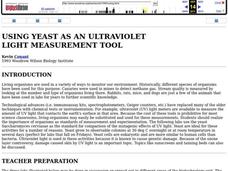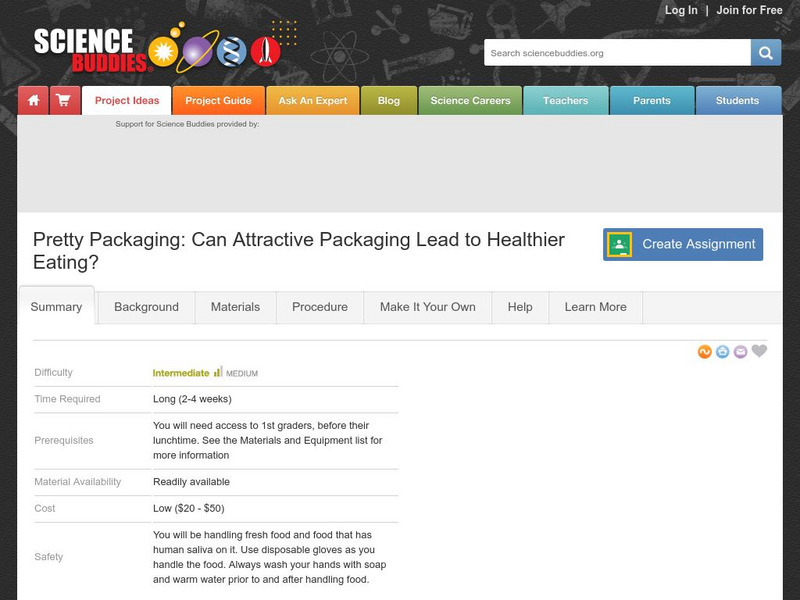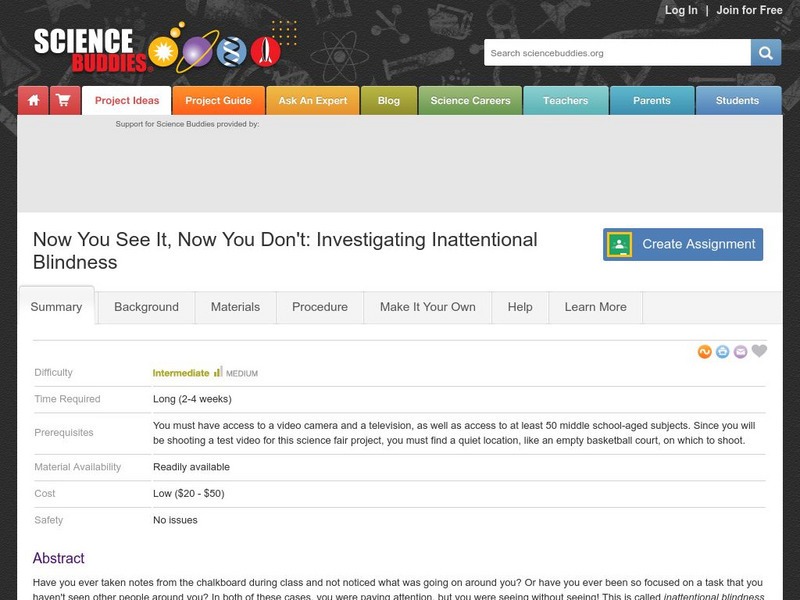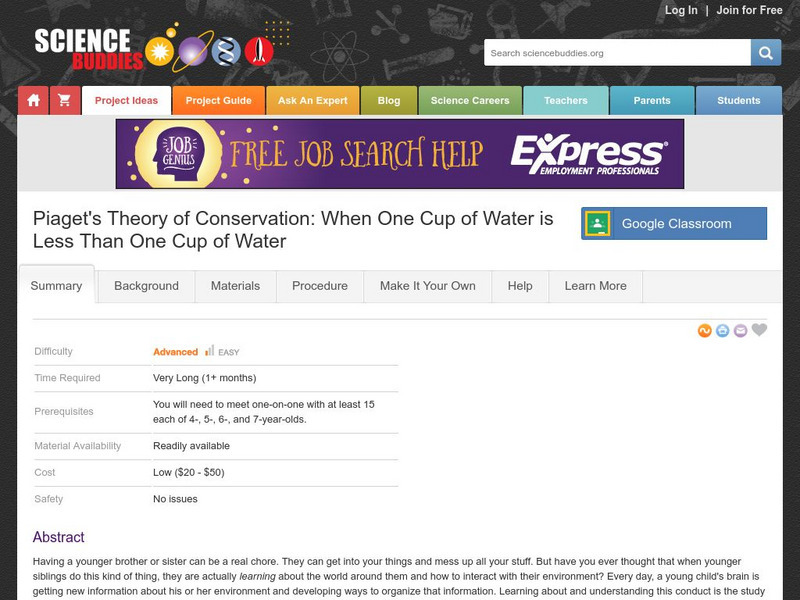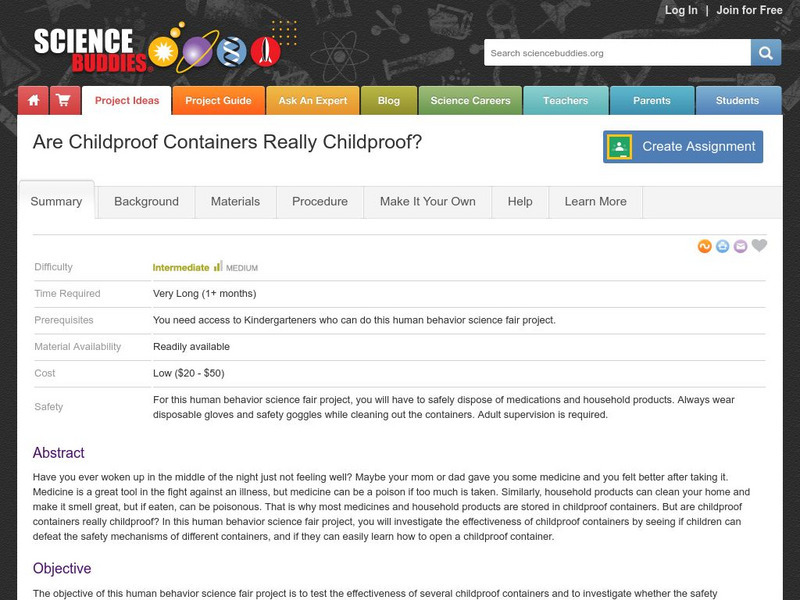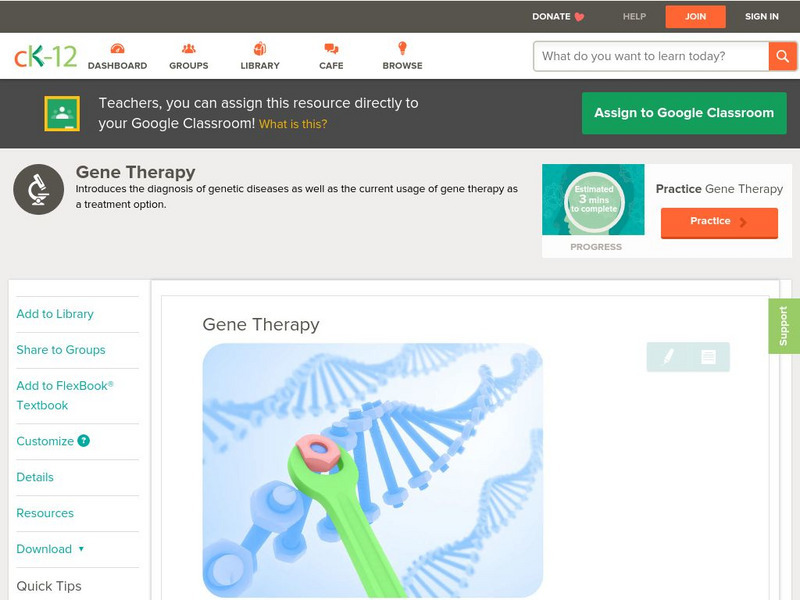Curated OER
Seed Selection for Genetic Variation
Students will research the origin of corn, analyze factors that contribute to shorter and longer growing seasons, and use the scientific method to answer the question: Did seed selection contribute to the successful movement of corn from...
Curated OER
Using Yeast as an Ultraviolet Light Measurement Tool
High schoolers accurately measure the relationship between radiation dose and either survival or some genetic event such as mutation or recombination. They investigate the damage that was done to the DNA molecule as a result of exposure...
Curated OER
Latitude & Longitude Bingo
Students practice map reading skills through a reinforcement game of bingo. They select any 24 of 30 listed cities to write on blank bingo cards. Then using atlases, locate a city based on the latitude and longitudinal coordinates...
Curated OER
Got Biodiversity?
Young scholars examine the concept of biodiversity. Using the internet, they complete small activities in which they work together. Using the information they collected, they create a class book, make murals and write in their journals.
National First Ladies' Library
A Blessing in Disguise
Young scholars study the history of polio as well as a history of modern medicine, the history of alternative medicine and the role of the scientific method in each of these histories. They review the scientific method and research...
Curated OER
Laetoli Trackway Puzzle
Students try to reach a "best explanation" after viewing diagrams. In this trackway lesson students complete several worksheets, make observations and hypothesize.
Curated OER
Editing Emily's Way: An Exercise in Diction and Its Implications
Students examine the poetry of Emily Dickinson and the diction in her poetry. In this poetry analysis lesson, students read Dickinson poetry and analyze the diction in the poems. Students journal about the poetry and rewrite their own...
Curated OER
The Perils of Drinking Water
Students determine the presence of drugs in water. In this chemistry lesson, students experiment on water samples using thin layer and column chromatography. They determine the concentration of drugs present using graphical analysis.
US Holocaust Memorial Museum
U.s. Holocaust Memorial Museum: Nazi Medical Experiments
A description of the use of concentration camp prisoners for medical experimentation by the Nazis during World War II.
TeachEngineering
Teach Engineering: Rotary Encoders & Human Computer Interaction
Students learn about rotary encoders and discover how they operate through hands-on experimentation. Rotary encoders are applied in tools to determine angle measurements and for translations of angular motion. One common rotary encoder...
Science Buddies
Science Buddies: Project Ideas: Pretty Packaging: Lead to Healthier Eating?
In this human behavior science fair project, the student will investigate whether packaging can persuade children to eat healthily. The Science Buddies project ideas are set up consistently beginning with an abstract, objective, and...
Science Buddies
Science Buddies: Proect Ideas: Investigating Inattentional Blindness
The goal of this human behavior science fair project is to investigate inattentional blindness and visual perception and see what percentage of a test population notices an unexplained object in a video. The Science Buddies project ideas...
Science Buddies
Science Buddies: Piaget's Theory: One Cup of Water Is Less Than One Cup of Water
In this human behavior science fair project, the student will learn about Piaget's developmental stages and the Theory of Conservation. The student will investigate the age at which children understand the equality of numbers and mass....
Science Buddies
Science Buddies: Project Ideas: Are Childproof Containers Really Childproof?
In this science fair project, determine if childproof containers are effective and investigate if a child can learn how to open the containers with practice. The Science Buddies project ideas are set up consistently beginning with an...
Other
American Association for Laboratory Animal Science: Humane Care and Use
Guidelines and recommendations encouraging responsible use of vertebrate animals for scientific laboratory study.
Science Buddies
Science Buddies: Project Ideas: Delayed Gratification
In this human behavior science fair project, learn about delayed gratification. The Science Buddies project ideas are set up consistently beginning with an abstract, objective, and introduction, followed by a section on terms, concepts,...
Other
Fagler College/nas 111/scientific Methodology
Power Point presentation on scientific method for NAS 102 Human and Environmental Biology II.
CK-12 Foundation
Ck 12: Life Science: Gene Therapy
[Free Registration/Login may be required to access all resource tools.] Gene therapy is the insertion of genes into a person's cells to cure a genetic disorder. Could gene therapy be the cure for AIDS? No, AIDS is caused by a virus. Gene...
University of Virginia
U of Virginia: Bad Blood: The Tuskegee Syphilis Study
Participants in the Tuskegee Syphilis Study were never told that they had syphilis. Instead, the doctors and scientists said they had "bad blood." Find out what took place during this study, and the social and political consequences...
PBS
Pbs: An Apology 65 Years Late
An article covering former President Clinton's apology to the survivors and family members of the Tuskegee Syphilis Study. Dated May 16, 2007.
Science Buddies
Science Buddies: Project Ideas: Hands on Shopping: Buy if You Can Give It a Try
In this behavioral science fair project, students will determine if handling merchandise affects interest in a product or its perceived value. The Science Buddies project ideas are set up consistently beginning with an abstract,...
Science Buddies
Science Buddies: Project Ideas: Don't Get Burned: Uv Index Throughout the Day
Sun tanning has a bad rap right now. Use a personal ultraviolet monitor to measure the UV index to prevent getting a sunburn. With this science fair project you will create a chart showing the UV ray measurement at different times of the...
Science Buddies
Science Buddies: Think Fast: Do Video Game Players Have Faster Reaction Time
Are you an avid video game player? Do you think this helps you have fast reaction times? This Science Buddies science project lays out an experiment to help you test your hypothesis. The Science Buddies project ideas are set up...
Other
Elements Online: Are Animals Effective in Testing?
This site questions the use of animals, specifically in the testing of prolonged exposure to pesticides. This article argues that, although pesticides have been found "safe" through animal testing, the long-term effects on humans has not...



